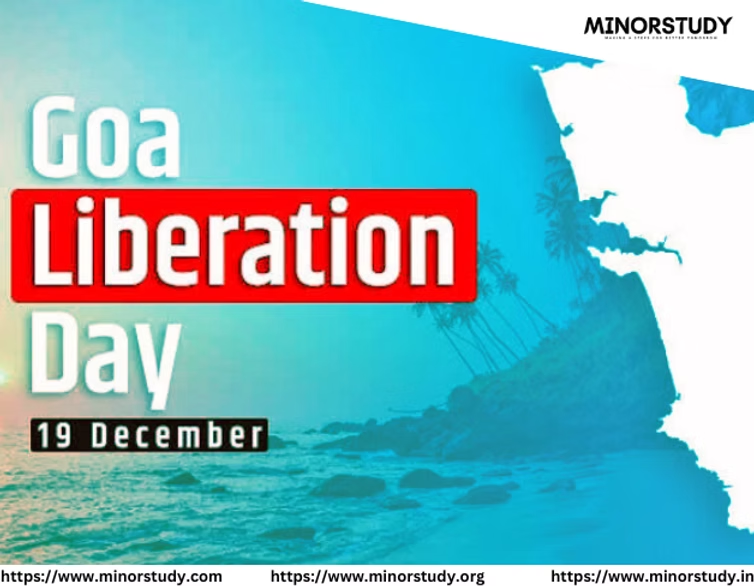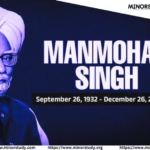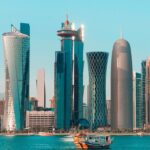7 Powerful Facts About Goa Liberation Day That Changed Indian History Forever
Goa Liberation Day is observed annually on December 19 to commemorate the liberation of Goa from over 450 years of Portuguese rule and its formal integration into the Republic of India. It marks a crucial moment in Indian history—a delayed but decisive stand for freedom and national unity. The observance is not just about remembering a military operation, but about honouring the resilience of a people, the strategic resolve of a nation, and the emotional story of India’s final unification.
- 📜 History of Goa Liberation Day
- 🔢 7 Powerful Facts About Goa Liberation Day
- 📆 Timeline of Events
- 🌏 Significance of Goa Liberation Day
- 🎉 Observance and Celebrations
- 🙏 Wishing on Goa Liberation Day
- ❓ Frequently Asked Questions (FAQs)
- Q1: Why was Goa not part of India in 1947?
- Q2: What is Operation Vijay?
- Q3: When did Goa become a state?
- Q4: How long was Goa under Portuguese rule?
- Q5: Why is Goa Liberation Day important?
- 🎯 Why Goa Liberation Day Is Important in Our Life
- 🧠 Important Points to Remember
- 💬 Conclusion: Daily Life Impact of Goa Liberation Day
📜 History of Goa Liberation Day
Goa was colonized by the Portuguese in 1510, much before the British entered India. Despite India gaining independence from British rule in 1947, Goa remained under Portuguese control, making it an anomaly in newly independent India’s sovereign geography.
While India’s diplomatic efforts persisted for over a decade, Portugal refused to relinquish control over Goa, Daman, and Diu. Indian patience and peaceful negotiations eventually wore thin in the face of continued resistance and repression in Goa.
In December 1961, after years of failed diplomatic attempts and escalating civil unrest, the Indian government initiated “Operation Vijay” (Operation Victory). The military operation lasted just 36 hours from December 18 to 19, involving the Indian Army, Navy, and Air Force. Goa, along with Daman and Diu, was liberated, ending 451 years of colonial rule.
On December 19, 1961, Goa was officially integrated into India, marking it as Goa Liberation Day.
🔢 7 Powerful Facts About Goa Liberation Day
Longest Colonial Occupation in India
Goa was under foreign control for 451 years, longer than any other region in India.Nonviolent Movements Preceded Military Action
Peaceful protests and civil disobedience in Goa, supported by Indian freedom fighters, tried to pressure Portugal out before any military move.Operation Vijay Was Swift and Successful
The Indian Armed Forces completed the mission in less than 36 hours, with minimal casualties on both sides.Portugal Refused to Recognize the Annexation Until 1974
Despite the success of Operation Vijay, Portugal did not officially accept Goa’s annexation until the Carnation Revolution in 1974.Goa Became a Union Territory
After liberation, Goa was made a Union Territory along with Daman and Diu, before attaining full statehood in 1987.The Move Strengthened India’s Territorial Integrity
The liberation of Goa signified India’s commitment to territorial unification and rejection of colonial legacies.Goa Today Celebrates Its Cultural Fusion
Modern Goa is known for its unique blend of Indian and Portuguese cultures, which flourished due to this long, complex history.
📆 Timeline of Events
| Year | Event |
|---|---|
| 1510 | Portuguese colonization of Goa begins |
| 1947 | India gains independence; Goa remains under Portugal |
| 1955 | Indian Satyagrahis stage protests; many are killed by Portuguese forces |
| 1956–1960 | India pursues diplomatic pressure against Portugal |
| Dec 17, 1961 | Indian PM Nehru orders military action |
| Dec 18, 1961 | Operation Vijay begins |
| Dec 19, 1961 | Goa is liberated and integrated into India |
| 1987 | Goa attains full statehood |
🌏 Significance of Goa Liberation Day
Completion of India’s Decolonization
Goa’s liberation marked the final chapter in India’s struggle against foreign domination.Symbol of National Resolve
Despite global criticism, India’s action showcased a firm stance for sovereignty and self-determination.Empowerment of Goans
The end of Portuguese rule enabled political freedom, economic reform, and cultural expression in Goa.Strategic Maritime Importance
Goa’s coastline is of immense naval and trade value to India today.Cultural Revival and Preservation
Post-liberation, Goans gained the freedom to practice and promote their local arts, language, and traditions.
🎉 Observance and Celebrations
Goa Liberation Day is marked by grand celebrations across Goa, especially in Panaji, the state capital.
Flag hoisting ceremonies and military parades are organized.
Cultural performances, especially traditional Goan dances and music, are performed.
Wreath-laying ceremonies honor the martyrs of the liberation movement.
Public speeches, film screenings, and exhibitions educate citizens about the day’s historical significance.
Schools and colleges conduct essay competitions and history projects to keep the legacy alive.
The celebrations reflect both patriotism and gratitude for the sacrifices that brought about this freedom.
🙏 Wishing on Goa Liberation Day
Wishing someone on this day should come from the heart and with respect for the struggle. Here are some thoughtful wishes:
“On this Goa Liberation Day, let us honor the courage of those who fought for freedom and celebrate the vibrant spirit of Goa. Jai Hind!”
“Happy Goa Liberation Day! May we always remember the power of unity and the value of freedom.”
“Celebrating the day Goa breathed free. A salute to the martyrs and freedom lovers who made it possible.”
❓ Frequently Asked Questions (FAQs)
Q1: Why was Goa not part of India in 1947?
Answer: Goa was under Portuguese colonial rule, and Portugal refused to relinquish control even after India gained independence.
Q2: What is Operation Vijay?
Answer: Operation Vijay was a military operation conducted by India in December 1961 to liberate Goa from Portuguese rule.
Q3: When did Goa become a state?
Answer: Goa was granted statehood on May 30, 1987.
Q4: How long was Goa under Portuguese rule?
Answer: Goa was under Portuguese control for 451 years, from 1510 to 1961.
Q5: Why is Goa Liberation Day important?
Answer: It marks the end of colonial rule in India and celebrates the successful integration of Goa into the Indian Union.
🎯 Why Goa Liberation Day Is Important in Our Life
Promotes National Awareness: It educates younger generations about India’s complex post-independence journey.
Inspires Patriotism: The courage and resolve shown by the Indian government and people inspire civic responsibility.
Cultural Value: Celebrating this day keeps Goa’s unique identity and heritage alive.
Reminds Us of Unity: It’s a reminder that even long-standing problems can be solved through unity and resolve.
🧠 Important Points to Remember
Date of Observance: December 19
Operation Name: Operation Vijay
Liberation Year: 1961
From Whom: Portuguese colonial rule
Years Under Rule: 451
Became State: 1987
Current Celebrations: Parades, cultural events, tributes
💬 Conclusion: Daily Life Impact of Goa Liberation Day
Goa Liberation Day is not just a state holiday; it is a reflection of freedom, identity, and justice. It teaches us that no nation should ever be denied its sovereignty. The celebration reminds all Indians that freedom is not just about breaking chains, but about reclaiming dignity. Whether you’re in Goa or another part of India, this day encourages reflection on the cost of freedom and the responsibility we bear to preserve it.
In everyday life, the legacy of December 19 influences education, governance, pride in heritage, and our attitude towards national integrity. It’s a day that tells every Indian: liberation is a right, and unity is our strength.








